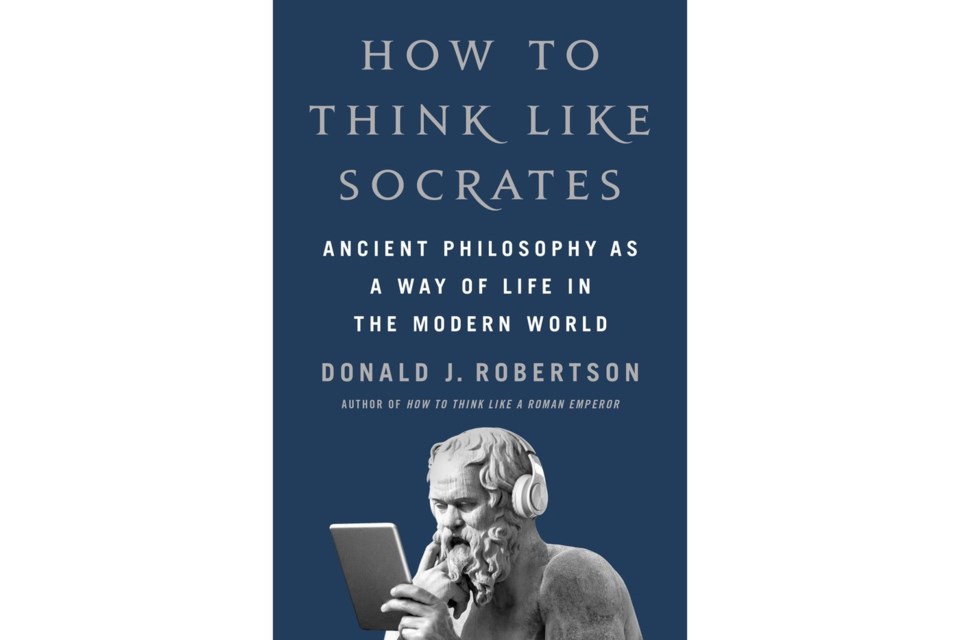The lessons of Socrates have never really gone out of style, but if thereŌĆÖs ever a perfect time to revisit the ancient philosopher, now is it.
In ŌĆ£How to Think Like Socrates: Ancient Philosophy as a Way of Life in the Modern World,ŌĆØ Donald J. Robertson describes Socrates' Athens in terms that seem all too familiar: a society where people's trust in government is shaken, and an extremely polarized split between political factions.
Despite its title, Robertson's book isn't solely a self-help guide based on ancient philosophy. Robertson's book is certainly easier than slogging through Plato and multiple volumes of ancient Greek history.
But the book is inconsistent and difficult to follow sometimes, as it bounces from an easy distillation of Socrates' philosophy to an all-too-detailed history of ancient Greece. Some of the history is understandably needed to give context to Socrates, but often it feels as though Robertson is writing two separate books for two different audiences.
The explanation of Socrates, particularly a section walking readers through the Socratic Method ŌĆö the question-based method Socrates used to teach students ŌĆö is the strongest portion of Robertson's book. The book offers a solid biography of Socrates and his times, but it could use some work weaving in the modern-day application of his lessons.
Robertson easily demonstrates throughout the book how Socratic philosophy can be used for addressing fear, including anxiety over death. His lessons on how to defend ourselves against rhetoric are particularly timely in an era of
Robertson also successfully explains to readers why they should be skeptical of the sweeping generalizations offered by self-help books.
ŌĆ£Wisdom requires being able to identify when a rule no longer holds true, and good advice becomes bad advice,ŌĆØ he writes.
Through Robertson is able to underscore how timeless Socrates' advice remains, his book could stand to be more accessible for readers hoping to find that advice.
___
AP book reviews:
Andrew Demillo, The Associated Press


